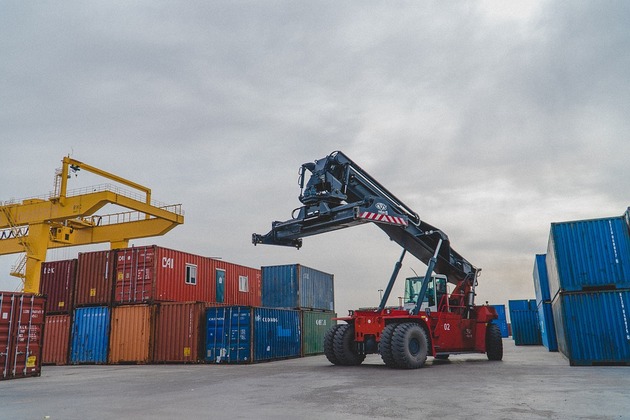Cargo transiting through Kazakhstan is expected to double in volume by 2025 from 2010, said Deputy Minister of National Economy Alibek Kuantyrov in a recent interview with Nikkei Asia in the capital of Nur-Sultan, pointing to the country as a "very important link" between Europe and Asia.
Kuantyrov emphasized the importance of building an "efficient transportation infrastructure" to the economic development of landlocked Kazakhstan, which is celebrating the 30th anniversary of independence from the Soviet Union this year. He hopes the establishment of a transportation network will help Kazakhstan to form closer economic ties with countries in Central Asia and Russia.
Kazakhstan's strategic location makes it crucial to China's Belt and Road Initiative, which aims to create a massive economic zone linking China to Europe by land and sea, "undoubtedly bringing advantage" to the country.
Rail transport accounts for about 90% of current cargo traffic. Container traffic volume is rising particularly sharply, totaling 876,000 TEU, or 20-foot equivalent units, in 2020, up 32% from the previous year.
He attributed the growth in cargo volume and the development of industrial infrastructure to the BRI. Kazakhstan's transit cargo volume totaled 22.7 million tons in 2020, a 1.5-fold increase from 2010. Kuantyrov predicted that cargo volume passing through the country will reach 30 million tons in 2025.
Kazakhstan's rail transport is also benefiting from rising maritime shipping costs, and shipping delays due to the COVID-19 pandemic, the grounding of the Ever Given container ship in the Suez Canal that blocked traffic for days, and a surge in online shopping.
Rail transport is preferable to many companies as it takes only about two weeks to shift cargo from China to the European Union, whereas maritime shipping between the two markets takes more than a month.
The deputy economic minister said that Kazakhstan will "continue to enhance its competitiveness as a transit hub." Kuantyrov pointed out that Kazakhstan has constructed rail lines totaling 2,500 kilometers since its independence in 1991 following the collapse of the Soviet Union, and roads totaling over 3,000 kilometers between 2015 and 2020.
Kazakhstan has also focused its efforts on the construction of transportation terminals. The country now has a transportation terminal in Khorgos on the border with China and also terminals in Lianyungang, a city in the Chinese province of Jiangsu, and at a port in Batumi on the Black Sea. Infrastructure has also been built in Aktau in the west of Kazakhstan on the Caspian Sea.






